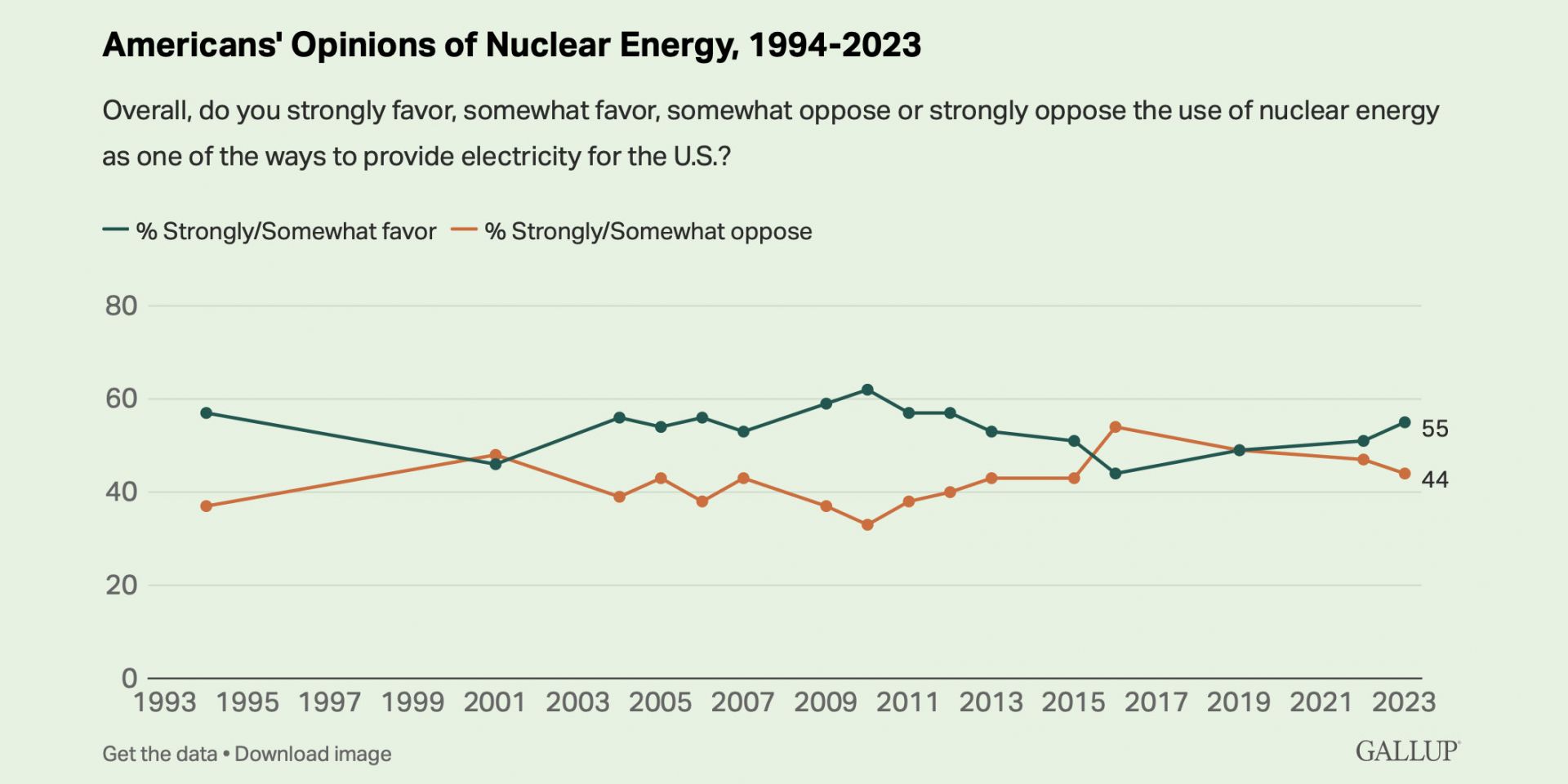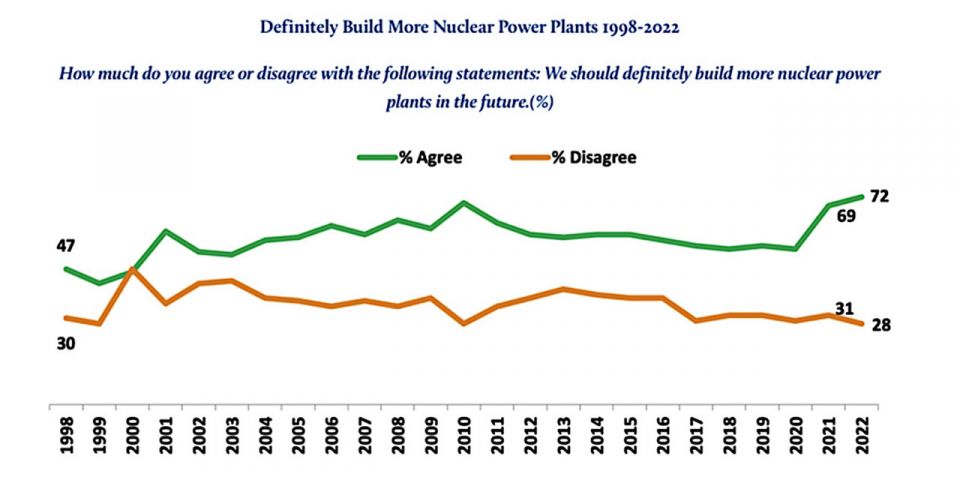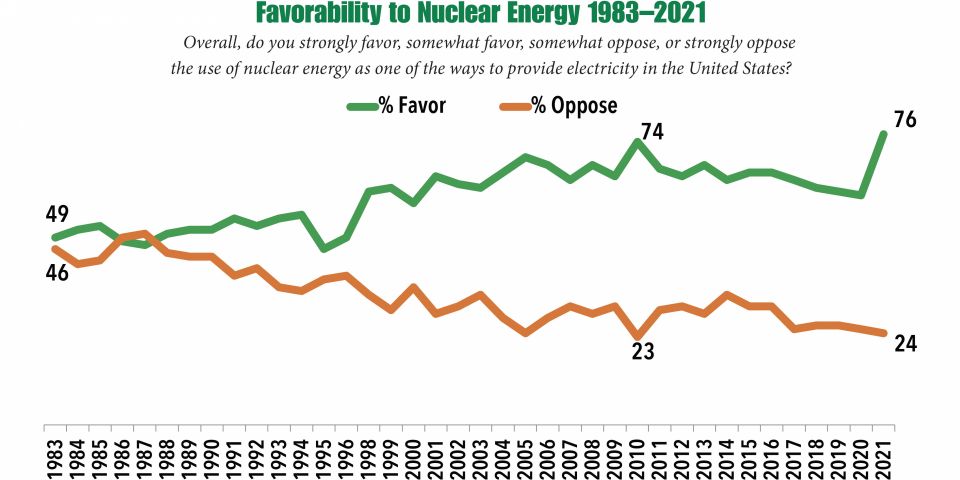Despite the recent gains, American support for nuclear power remains below its peak level over the past 30 years of Gallup’s asking the question, which was 62 percent in 2010. On the other side of the coin, Gallup reports that 44 percent of American adults currently oppose nuclear energy—down from 54 percent in 2016.
Party affiliation: In a breakdown of the demographic variables in its 2023 survey, Gallup reports that Republicans continue to be much more likely than Democrats to hold pronuclear views, as the organization has consistently found since 2001. Sixty-two percent of Republicans say that they support nuclear energy today, compared with 46 percent of Democrats and 56 percent of independents. Since Gallup started conducting public opinion surveys on nuclear energy in 1994, Republican favorability toward nuclear has been as high as 76 percent, in 2009.
Although Democrat support for nuclear energy remains under 50 percent, it has increased quite a bit from the 39 percent recorded just last year. Gallup suggests that this upward swing may be associated with the Biden administration’s promotion of nuclear power as part of its clean energy strategy for dealing with climate change.
Gender and education: Gallup also reports that men continue to be more supportive of nuclear energy than do women. Among men, 37 percent strongly favor and 30 percent somewhat favor nuclear, while 16 percent somewhat oppose it and 16 percent strongly oppose it. The percentages for women are, respectively, 13 percent, 29 percent, 28 percent, and 28 percent.
In addition, higher education levels correlate with pronuclear sentiments in this poll, as they long have. Among Americans who are college graduates, 27 percent strongly favor and 36 percent somewhat favor nuclear, while 22 percent somewhat oppose it and 14 percent strongly oppose it. Among Americans who have not graduated from college, these proportions are, respectively, 24 percent, 27 percent, 22 percent, and 26 percent.
Oil and gas prices: Public opinion on nuclear energy tends to reflect trends in oil and gas prices, according to Gallup, with nuclear typically being viewed more favorably when prices of petroleum products are high and less favorably when those prices are low. Americans are all too familiar with the high prices at gas pumps these days. The survey organization notes that public opinion toward nuclear energy could turn negative again if gas prices fall to levels that are perceived as being more acceptable.






